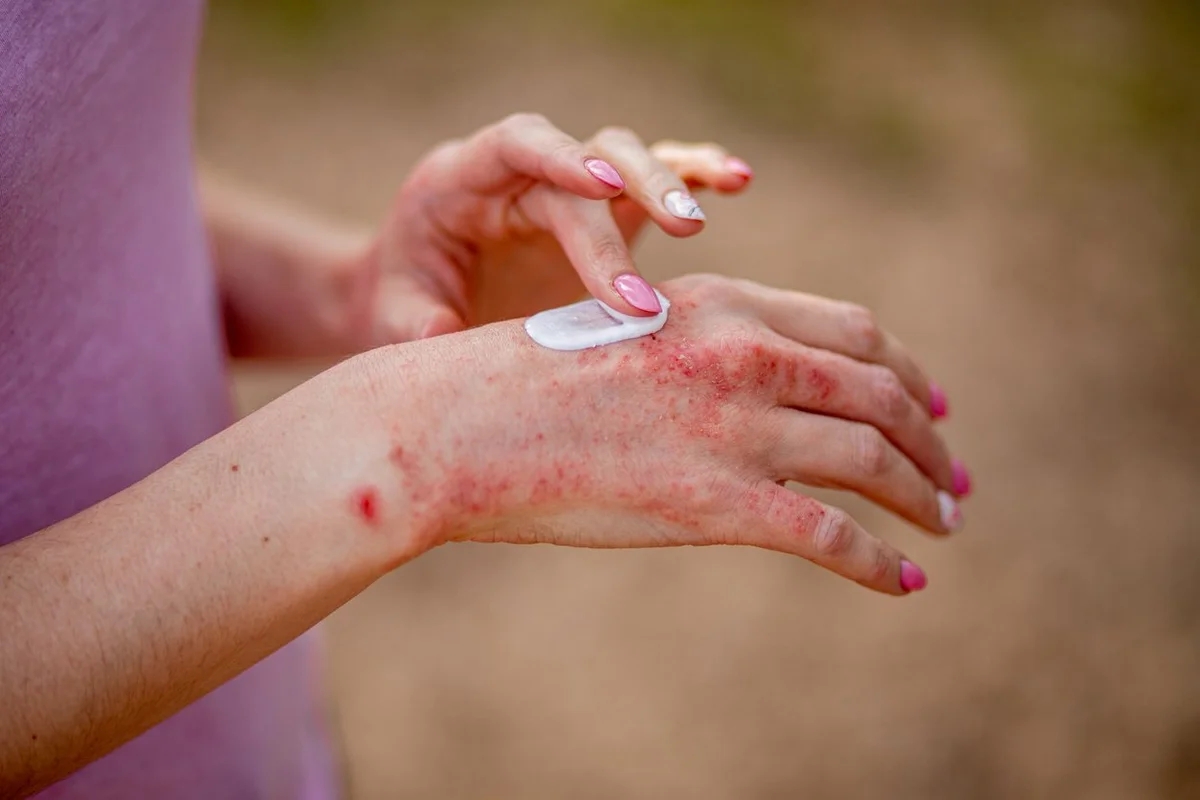More than 7.5 million Americans live with psoriasis, an incurable skin disease characterized by red, scaly patches that appear anywhere on their bodies — from face and hands to elbows and knees. More than six out of ten sufferers also struggle with depression or anxiety related to their illness.
One study discovered that those living with skin conditions are significantly more likely to experience psychiatric disorders than those diagnosed with cancer, brain disorders or cardiovascular problems combined. Another indicated that women were far more likely than men to experience these problems.
Psoriasis symptoms are highly visible, making the disease difficult to hide from view. Living with this disease requires dealing with its stigma; those affected may feel misunderstood or even mocked by their peers and struggle with mental health challenges that are far more painful than any physical manifestations.
Fear of Rejection Leads to Isolation “Most people with psoriasis experience anxiety and worry when it comes to their self-image,” according to Mina Guirguis, M.D., a clinical psychologist from the Emotional Wellness Center for Skin Disorders in Baltimore. Guirguis specializes in psychodermatology – an area of medicine which investigates how skin conditions such as psoriasis affect mental health (and vice versa).
Guirguis noted that much of the anxiety experienced by those living with psoriasis relates to what others think of them and whether they accept them for who they are as individuals, fearing rejection from society and opting to isolate or conceal themselves instead of facing this fear head-on. “People may often isolate or hide their skin condition,” Guirguis stated.
Fear of rejection can play an integral role in an individual with psoriasis’ daily life, shaping every decision they make regarding social interactions – particularly regarding workplace interactions such as after work socializing. “For example,” Guirguis noted, “they may turn down invitations from coworkers for postwork drinks or avoid situations in which their skin condition could attract unwanted attention from others.
Psoriasis’ effects on self-image can make it hard for those in relationships who suffer from it to form close ties with one another, according to Guirguis. “[Their partner may reject advances due to feelings of discomfort with showing themselves] which further deteriorate their relationship and pushes them apart,” Guirguis explained.
Stigma and misunderstanding often surround psoriasis, leading those living with it to feel anxious about how others may view their condition. Their mental health problems often stem from how people who do not fully comprehend psoriasis treat or mistreat them in response.
One woman with psoriasis shared her story in an International Journal of Women’s Dermatology article published in 2018 about skin disorders and self-esteem: she was denied blood donation by a nurse who accused her of having highly contagious fungal infection ringworm, forcing her to wear long-sleeved shirts on even hot days after one customer accused her of “shed skinning” his cake purposely.
Another woman, quoted in the same article, described staying in an abusive relationship for nearly 10 years because her abuser told her no one would love her with “all those things” on her skin. Both women went on to become patient advocates with the National Psoriasis Foundation, helping others cope with its physical and psychological impacts.
Sharing Information To Reduce Stigma
Information is key when it comes to combatting stigma associated with psoriasis. Helping those around you understand that it’s not contagious can go a long way toward changing how people see this disease – and those living with it. Knowledge empowers action!
Guirguis emphasizes the responsibility of healthcare providers in helping the public understand skin conditions like psoriasis and their impact on mental health. “Mental health professionals as well as dermatologists should provide education on this illness to dispel any misconceptions,” he noted.
Mental health professionals and dermatologists may collaborate in treating psoriasis holistically, treating both its physical symptoms as well as its psychological impacts. When physical symptoms are successfully managed, mental wellbeing often improves as a result of treatment success.
Self-acceptance and honesty are integral parts of coping with psoriasis, according to Guirguis. He advises patients on accepting their skin condition rather than trying to hide it, which helps build self-esteem and confidence for those suffering.
“Acceptance of one’s condition and situation will allow patients to free their minds of wondering how others perceive them and whether or not they will be accepted,” according to Guirguis. He recommends people with psoriasis seek professional assistance for self-acceptance.
Some individuals living with psoriasis may find exercise beneficial in lifting their mood, particularly those suffering from depression. Furthermore, according to a review of nine studies that looked into physical activity’s benefits on related conditions such as heart disease and type 2 diabetes – further adding up to an increased overall sense of well-being.
Coping strategies that reduce stress are also shown to aid the wellbeing of those living with psoriasis. Yoga, mindfulness and meditation have all been proven to enhance both physical and mental wellbeing.
Sharing your struggles with psoriasis can also be immensely therapeutic and build connections between individuals suffering from the condition.
Guirguis suggested starting by engaging in honest dialogue. She encouraged telling loved ones about your skin condition’s effect on both emotional and physical wellbeing; although you won’t always succeed at getting everyone on board with what’s happening for themselves, at least you are helping open their minds up to understanding your struggles better.
